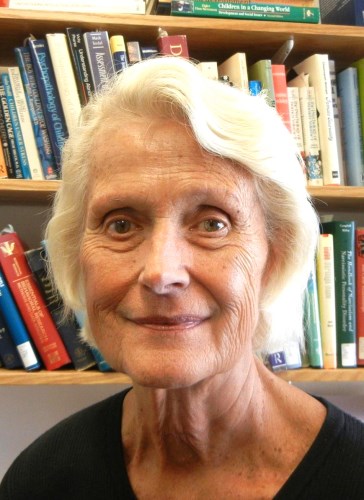Phebe K. Cramer
 Phebe K. Cramer was a consummate researcher, clinician, administrator, and athlete. Her most notable contribution as a psychologist was the creation and validation of a model of defense mechanism development and 30+ years of experimental, longitudinal, and cross-sectional research providing empirical support for the model. Her Defense Mechanism Manual (DMM) permits interscorer-reliable coding of developmentally anchored defenses in thematic apperception test (TAT) stories, and her longitudinal publications demonstrate the impact of defenses on personality development from adolescence through adulthood.
Phebe K. Cramer was a consummate researcher, clinician, administrator, and athlete. Her most notable contribution as a psychologist was the creation and validation of a model of defense mechanism development and 30+ years of experimental, longitudinal, and cross-sectional research providing empirical support for the model. Her Defense Mechanism Manual (DMM) permits interscorer-reliable coding of developmentally anchored defenses in thematic apperception test (TAT) stories, and her longitudinal publications demonstrate the impact of defenses on personality development from adolescence through adulthood.
Phebe was born in San Francisco, California, in 1936 and grew up in Oakland, California. A resident of Williamstown, Massachusetts, she died at the age of 85 on April 22, 2021. Phebe was the daughter of the late Carl and Edna Winkler Cramer. Phebe obtained her undergraduate degree from University of California (UC), Berkeley (1957). Her introduction to personality assessment began as a research assistant at the Institute of Personality Assessment and Research, where Jack Block, Harrison Gough, and Frank Barron studied the lives of creative individuals. Phebe obtained her doctorate in clinical psychology from New York University in 1962 where she assisted Robert Holt, George Klein, and David Rapaport at the Research Center for Mental Health in empirical research on psychoanalytic concepts. Her graduate school summers were spent assisting Henry Murray at Harvard University, where she studied the TAT intensely. Phebe’s doctoral dissertation, The recovery of a discrete memory (published in the Journal of Personality and Social Psychology, 1965), was among the earliest studies of priming.
Phebe began her academic career at Barnard College, Columbia University (1963–1967), then held a National Institute of Mental Health (NIMH) research fellowship at UC-Berkeley’s Institute of Human Learning (1965) and returned to UC-Berkeley in 1967 to teach, conduct research, and do clinical work, influenced by the work of Jean Piaget and Rene Spitz. Thereafter, Phebe’s fascination with mental processes outside of awareness integrated her research and clinical interests. Her book presenting the DMM (1991) launched her elegant experimental and longitudinal studies providing empirical support for defense mechanism development.
Williams College was Phebe’s academic home. She achieved the rank of full professor (1973) and was among the first tenured female professors and first female chair of the psychology department. A pioneer for gender equality, she co-founded a committee that won salary equity and maternity leave for women there. Retiring from teaching (1990), she continued her research as emeritus. Phebe published over 118 articles and five books over 55 years. Phebe received the Society for Personality Assessment’s Bruno Klopfer Distinguished Contribution Award (2014) and the Henry A.Murray Award for Distinguished Contributions to the Study of Lives from the Association for Research in Personality (2018).
Phebe was a lifelong learner who enjoyed athletics, art, and travel. A competitive swimmer, she set 10 American records and one world record in the 100-yard butterfly and swam in the Olympic trials in 1952. Phebe’s passion for exploring new cultures was sparked at age 12 when she visited pre-Castro Cuba with her mother. Her postretirement travels covered the world. Coming home to Williamstown, Massachusetts, she enjoyed dinners and Scrabble games with friends, birds on the feeder in her window, and the deer in her backyard.
Phebe is survived by her daughters Julia Savacool of New York City and Mara Savacool Zimmerman of Olympia, Washington, and her two grandchildren, Elena and Nicholas Zimmerman.
-Dr. Sharon Rae Jenkins & Dr. John Porcerelli
